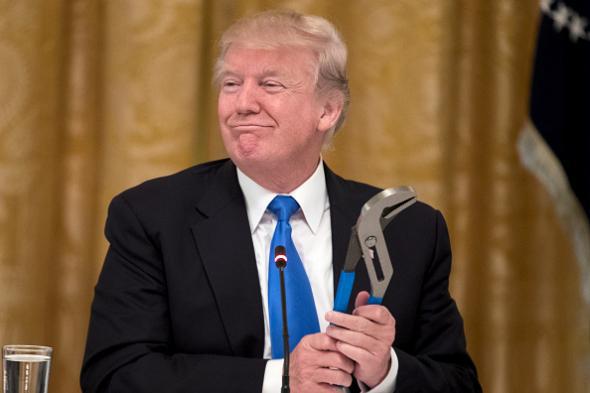
Michael Reynolds/Pool/Getty Images
Donald Trump conducted an interview with the New York Times on Wednesday in which he said some newsworthy things about Robert Mueller, James Comey, and Russia. Per a transcript of the interview released by the Times, he also made some perplexing comments about health insurance, namely this riff, which is ostensibly about the political difficulty of eliminating protections for individuals with pre-existing conditions:
Pre-existing conditions are a tough deal. Because you are basically saying from the moment the insurance, you’re 21 years old, you start working and you’re paying $12 a year for insurance, and by the time you’re 70, you get a nice plan. Here’s something where you walk up and say, “I want my insurance.” It’s a very tough deal, but it is something that we’re doing a good job of.
Twelve dollars a year! In reality, the Kaiser Family Foundation estimated that the average U.S. yearly premium for one specific type of middle-of-the-road individual plan offered through Affordable Care Act exchanges in 2016 was $4,583.
Trump made a similar comment in May, though at the time he named the relatively exorbitant price of $15 a month rather than $12 annually.
As others have pointed out, the president seems to be confusing health insurance rates with life insurance rates; life insurance is something you can pay a low rate for when you’re young and then reap the benefits from when you’re old/dead (“by the time you’re 70”) without having to pay an insane premium. Of course, 70-year-old Americans in every possible system of American health care—the one that currently exists, the ones that are proposed by Republicans, and the ones that are proposed by Democrats—will be covered by Medicare, not by plans they started to pay into when they were 21. So Trump’s explanation of how the system should/could work doesn’t make sense even if you give him the benefit of the doubt on the $12 number. Which you shouldn’t. Come on!